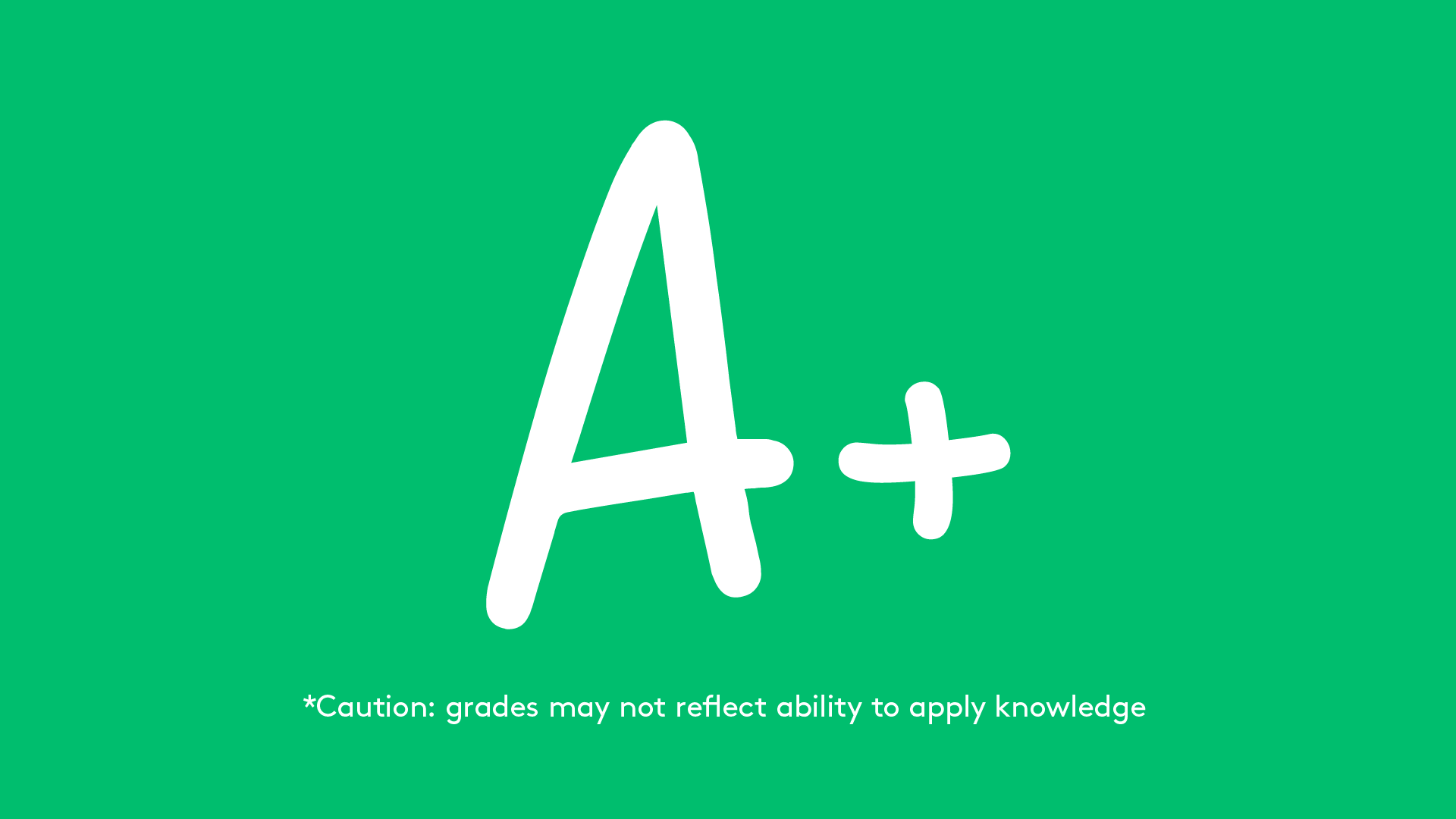
A Case for Abolishing Grades
Recently, The Atlantic published a fascinating article written by an educator who, for six weeks, stopped grading her high school students altogether. Unburdened from the negative effects of grades (read more about those effects here and here), her students thrived. They were more engaged, more willing to spend time contemplating their assignments and seemed more positive about learning. However, after six weeks, grades came back into play and extrinsic motivation reared its ugly head in the form of parent phone calls and student questions about “the weight of the assignment on their final grade”.
Grade-based Motivation is Antithetical to Learning
There is science to support the notion that the extrinsic motivation of good grades is antithetical to learning. According to research from the John W. Gardner Center at Stanford University, learning works best and is most effective when learners are intrinsically motivated – when they want to learn for the sake of self-betterment.
Grades Don’t Equal Knowledge
It is also not a stretch to say that grades often don’t accurately reflect knowledge (let alone intellect) and they are not an indication of what a student has truly learned. Grades are like a Polaroid – a snapshot of the information a learner held in his or her mind at an exact moment in time.
The distinction between learning and grade achievement is an important one. Advances in technology have not only made many jobs obsolete, but they have also created a gap between the skills that employers want and those that job seekers have. A recent Pew Research Center study showed that only 16 percent of Americans think that a four-year degree course prepares students very well for a high-paying job in the modern economy. As technology alters the jobs landscape, creating a culture of learning – wherein knowledge acquisition is a lifelong process that is measured in terms of skills rather than grades – is becoming imperative for the future of our workforces.
If grades aren’t the right answer, then what is?
We would argue that competency-based learning, wherein learners must demonstrate mastery of content prior to advancing to more challenging material, is a much more effective method of instruction. Just as contractors pour a firm foundation before building to ensure a sound structure; learners also need a strong foundation of knowledge before they can start adding on more complex concepts. Competency-based learning ensures that learners fully understand the concepts and are presented with corrective feedback when they need more help. It also taps into what the educator above discovered – that when learners can explore the learning content at their own pace and address the challenges of the content without worrying about a score or grade, they’re much more engaged and motivated. Learning becomes a pull, instead of a push strategy.
In practice, our partners have found that this higher level of engagement actually drives improved outcomes for their employees and their business. Learners in our platform are able to fully master the content and build confidence and, as a result, perform better on the job. But that’s not all; companies that have implemented competency-based learning through Fulcrum Labs have also witnessed reductions in training times of 20-50 percent.
Watch a video that explains how we incorporate competency-based learning into our platform, or contact us directly to experience it for yourself.
